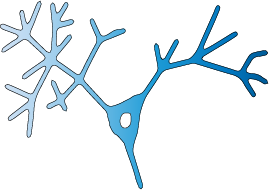
The bendesky lab
Zuckerman Mind Brain Behavior Institute, E3B, Columbia University
What we do
There are profound differences in behavior among individuals of a species as well as across species. Much effort has been devoted to the observation and theory of such behavioral variation, but the underlying genetic, molecular, and neurobiological mechanisms are largely unknown and usually studied separately. Our lab aims to understand how and why animals behave the way they do, with a special emphasis on social behaviors and other behaviors critical for survival. To that end we take an unusual holistic, multilevel ethological approach combining tools from evolutionary, quantitative, and molecular genetics, as well as biochemistry, endocrinology, developmental biology, and neuroscience. We choose optimal species for specific questions, such as monogamous species to study pair bonding and parental care, prey species to study responses to threats, and animals bred for fighting to study aggression.
In addition to our main focus on behavior, we work on selected projects to tackle other long-standing questions in evolutionary biology, including the molecular mechanisms that prevent species from mixing with each other. To answer these important questions, the lab focuses primarily on mice of the genus Peromyscus and on Siamese fighting fish (Betta splendens, or simply ‘betta’).
People
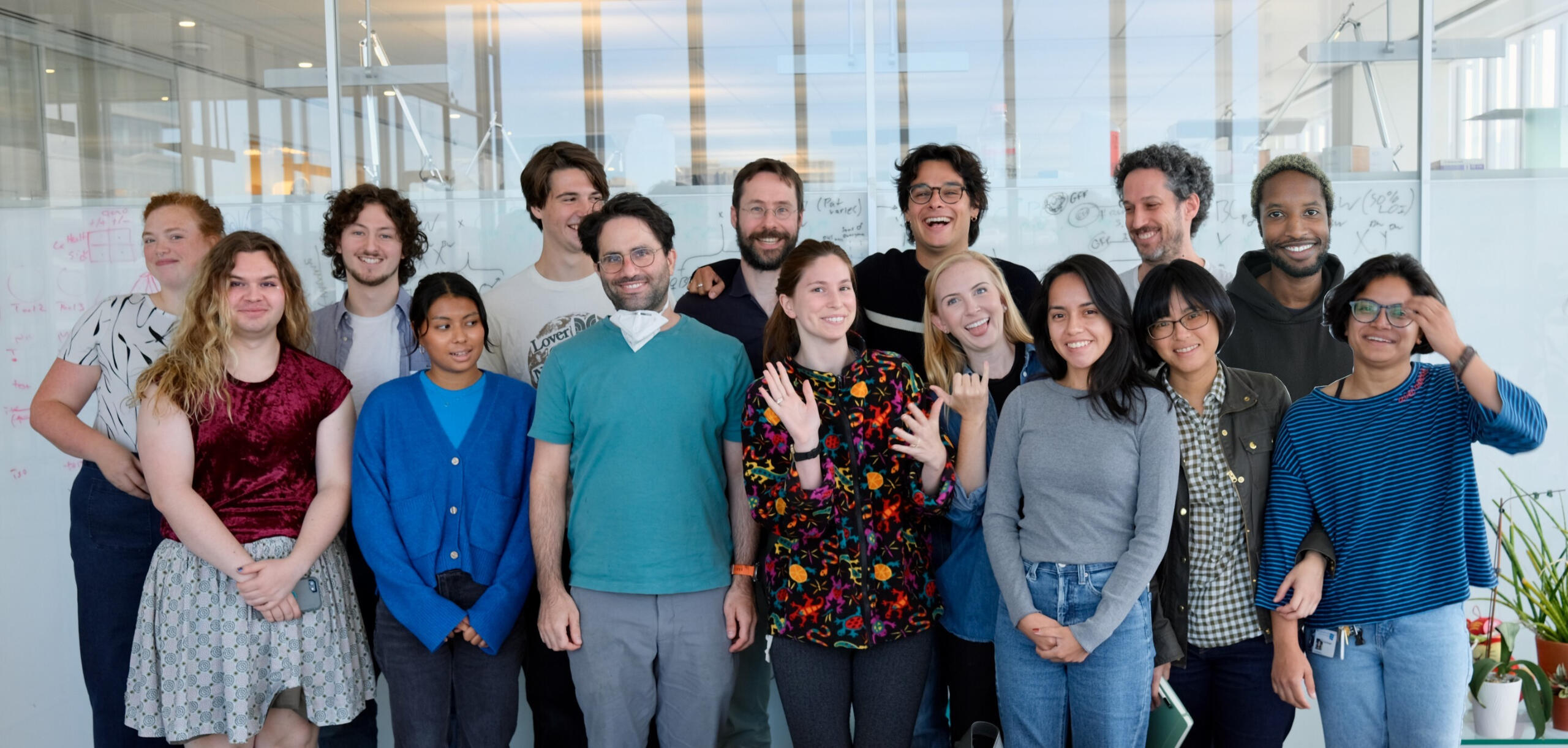
Bendesky Lab September 2023
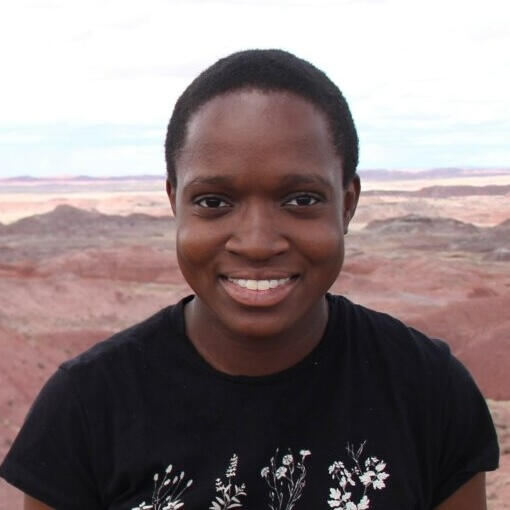
Christine Adjangba
Research Assistant
Christine majored in Biology and Evolutionary Anthropology at Duke. They are studying the control of the sympathetic nervous system.
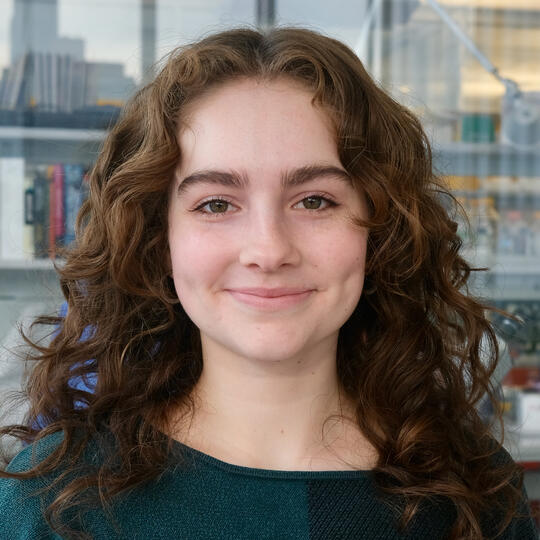
Camille Brown
E3B PhD Student
Camille majored in Biology and Radiation Physics at UT Austin and is interested in the evolution of behavior

Joshua Greene
Postdoc
Josh received his MD from Cornell and PhD from Rockefeller in the Bargmann lab. He is studying the evolution and neuro of the sympathetic nervous system.

Yuta Mabuchi
Postdoc
Yuta received his PhD from Cornell University. He is interested in studying the molecular and neuronal basis of parental behavior in Peromyscus.

Zach Mayer
E3B MA Student
Zach majored in Neuroscience at UC Boulder. He is interested in conservation genetics and is using betta fish as a model.
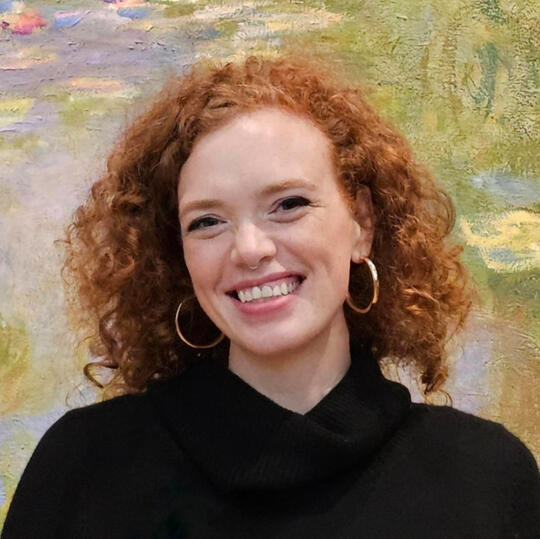
Jennifer Merritt
Postdoc
Jenny received her PhD from Emory University. She is studying the evolution of hormonal systems of Peromyscus.
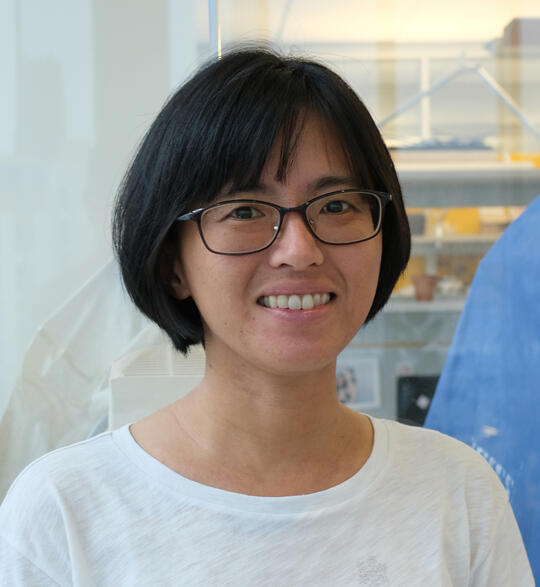
Pei-Yin Shih
Postdoc
Pei received her PhD from Caltech working in the lab of Paul Sternberg. She is studying the genetic basis of aggression in Betta splendens.
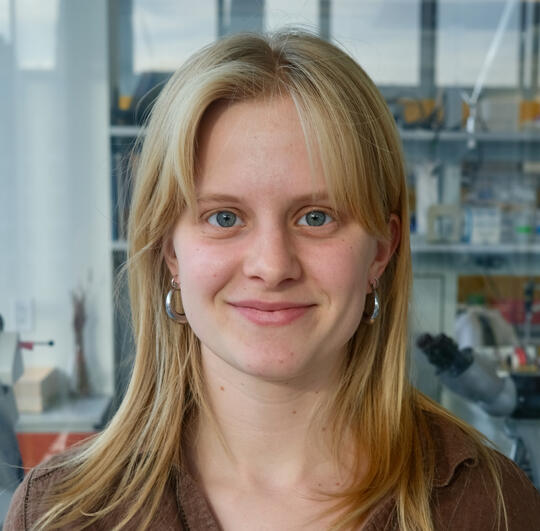
Fin Sterner
Research Assistant
Fin majored in Cognitive Science at Barnard College. She's working on parental behavior in Peromyscus
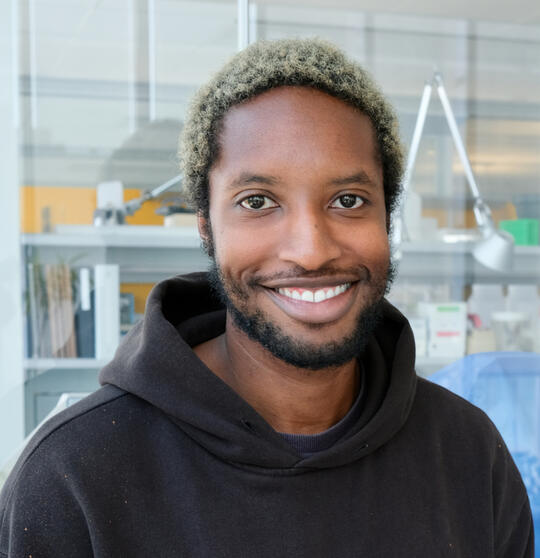
Wyatt Toure
PhD Student (E3B program)
Wyatt received his B.Sc. from Concordia University and his M.Sc. from McGill University. He is trying to solve Darwin's mystery of mysteries.
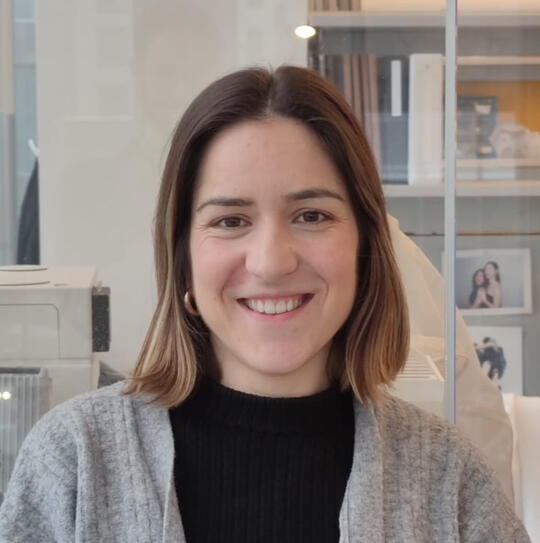
Paula R. Villamayor
Postdoc
Paula got her PhD from the University of Santiago de Compostela (Spain). She is studying neural and genetic mechanisms of sociosexual behaviors in betta fish.
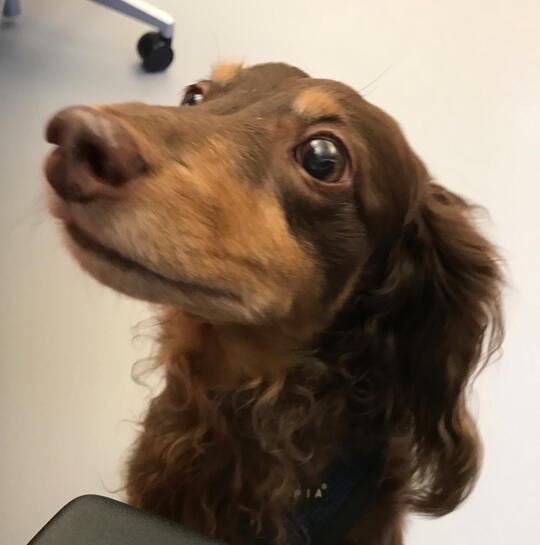
Julio Bendesky
Lab Mascot
Julio is a dachshund and really good at detecting and retrieving food (that belongs to others).
Lab Alumni
Madison Lichak
Undergrad & Research Assistant, then Graduate Student in the Campbell-Staton Lab at Princeton
Young Mi Kwon
Research Assistant, then research assistant in Darcy Kelley's lab
Kerel Francis
Lab Manager and Research Assistant, then Lab Manager of Cassanova lab at Rockefeller University
Alec Palmiotti
Research Assistant, then PhD Student at Northwestern University.
Jan-Niklas Runge
Postdoc, then Bioinformatician in the Molecular Pathology Unit at the University Hospital Zurich
Amy Norovich
Postdoc, then Scientist at the Simons Foundation Autism Research Initiative
Natalie Niepoth
First PhD student to graduate from the lab, then a Senior Scientist at Regeneron
Claire Everett
PhD student, then Data Scientist at TikTok
Wenxuan Dan
Master student, then a Data Mining Engineer at 51job
Yuqi Miao
Master student
Michelle Uminski
Master student, then a Research Scientist at Regeneron
Hiroki Tomida
Master student (E3B program), then Junior Consultant at Roland Berger Consulting, Tokyo
Yuyang Zhu
Master student
Riya Rampali
Postbac student, then masters student in E3B
Joseph Brew
Undergrad, then Masters student at Cambridge University
Emily Lei
Undergrad
SOPHIE LOCKWOOD
Research Assistant, then PhD student at Princeton
JOSEPHINE DOUCETTE
Undergrad
Peter Gorman
Undergrad, then PhD Student in Andrew Peters' lab at Oxford
Ina Bando
Undergrad, then Research Assistant in Fan Wang's lab at MIT
Kimberly Hernandez
PhD Student, then postdoc in Steve Siegelbaum's lab
Chris Gebhardt
Postdoc
Sam Szalkowski
Research Assistant, then clinical research in Wisconsin on his way to med school
Paula Villamayor
Postdoc, then postdoc in Paulino Martínez lab at Universidad de Santiago de Compostela
Publications
Retinoic acid production via the ray-finned fish gene beta-carotene oxygenase 1-like is essential for juvenile development
Krupa SL, Villamayor PR, Bandara S, Zhang Y, Palmiotti A, von Lintig J, Bendesky A
BiorXiv. 2025 Oct 4.
Coordination and persistence of aggressive visual communication in Siamese fighting fish
Everett CP, Norowich AL, Burke JE, Whiteway MR, Villamayor PR,Shih PY, Zhu Y, Paninski L, Bendesky A
Cell Reports. 2025 Jan 28;44(1):115208.
Scientific and media coverage
Grosskin L. What puts the fight in fighting fish? Science. Oct 15 2024.
Calli McMurray. Robots marry natural neuroscience, experimental control to probe animal interactions The Transmitter. Sept 19 2025.
Evolution of a novel adrenal cell type that promotes parental care
Niepoth N, Merritt JR, Uminski M, Lei E, Esquibies VS, Bando IB, Hernandez K, Gebhardt C, Wacker SA, Lutzu S, Poudel A, Soma KK, Rudolph S & Bendesky A
Nature. 2024 May 30
Scientific and media coverage
News and Views: Tollkuhn J. Parental-care puzzle in mice solved by thinking outside the brain Nature. 2024;629:1006-1008.
Elana Spivack. What Makes Some Mice Such Good Parents? This Newly Discovered Cell, Maybe. Inverse. May 15, 2024.
Judith de Jorge. Hallan un nuevo tipo de célula que promueve el cuidado parental. Diario ABC. May 17 2024.
Mark Johnson. Some mice have a cheating heart. It’s a hormonal thing, scientists find. The Washington Post. May 16 2024.
In Search of the ‘Good Dad’ Hormone. Columbia Magazine. Fall 2024.
The Evolution of Neurons
Bendesky A
Kandel Quarterly, Aug 8 2023. McGraw Hill, 2023. AccessNeurology
The main genetic locus associated with the evolution of gamecocks is centered on ISPD
Bendesky A, Brew J, Francis KX, Corbetto EFT, González Ariza A, Nogales Baena S, Shimmura T
G3 (Bethesda). 2023 Nov 22
Media coverage
Miriam Bergeret. A genome-wide association study published in G3: Genes | Genomes | Genetics offers insights into the genetic origins of aggression in gamecocks. Genes to Genomes. April 4, 2024.
Genetic manipulation of betta fish
Palmiotti A, Lichak MR, Shih PY, Kwon YM, Bendesky A
Front Genome Ed. 2023 Jul 21;5:1167093
Post-mating parental behavior trajectories differ across four species of deer mice
Khadraoui M, Merritt JR, Hoekstra HE, Bendesky A
PLoS ONE 2022 Oct 17;17(10)
Sexual Dimorphism in Brain and Behavior
Bendesky A
Kandel Quarterly, Aug 9 2022. McGraw Hill, 2022. AccessNeurology
Parent-offspring inference in inbred populations
Runge JN, König B, Lindholm AK, Bendesky A
Mol Ecol Resour. 2022 Jun 29
Care and use of Siamese fighting fish (Betta splendens) for research
Lichak MR, Barber JR, Kwon YM, Francis KX, Bendesky A
Comp Med. 2022 Jun 14;72(3):169-180
Genomic consequences of domestication of the Siamese fighting fish
Kwon YM, Vranken N, Hoge C, Lichak MR, Norovich AL, Francis KX, Camacho-Garcia J, Bista I, Wood J, McCarthy S, Chow W, Tan HH, Howe K, Bandara S, von Lintig J, Rüber L, Durbin R, Svardal H, Bendesky A
Sci Adv. 2022 Mar 11;8(10):abm4950
Media coverage
Annie Roth. The 1,000-Year Secret That Made Betta Fish Beautiful. New York Times. May 14, 2021.
Sarah Zhang. The Surprise Hiding in the DNA of Pet Fish. The Atlantic. May 14, 2021.
Christie Wilcox. My Daughter’s First Pet—the Next Big Model Organism? The Scientist. Jul 15, 2021.
How the mind affects the body
Bendesky A
Kandel Quarterly, Jul 8 2021. McGraw Hill, 2021. AccessNeurology
The neurobiology and evolution of niche preferences
Bendesky A
Kandel Quarterly, Oct 13 2021. McGraw Hill, 2021. AccessNeurology
Loop-mediated isothermal amplification detection of SARS-CoV-2 and myriad other applications
Moore KJM, Cahill J, … Bendesky A, … Mason CE, The gLAMP Consortium
J Biomol Tech. 2021 Sep;32(3):228-275
WHotLAMP: A simple, inexpensive, and sensitive molecular test for the detection of SARS-CoV-2 in saliva
Ng D, Pinharanda A, Vogt MC… Bendesky A
PLoS ONE 2021 Sep 16 16(9):e0257464
How natural genetic variation shapes behavior
Niepoth N, Bendesky A
Annu Rev Genomics Hum Genet. 2020 Apr 13
Generation, coordination, and evolution of neural circuits for vocal communication
Kelley DB, Ballagh IH, Barkan CL, Bendesky A, Elliott TM, Evans BJ, Hall IC, Kwon YM, Kwong-Brown U, Leininger EC, Perez EC, Rhodes HJ, Villain A, Yamaguchi A, Zornik E
J Neurosci. 2020 Jan 2;40 (1) 22-36.
The genetic basis of parental care evolution in monogamous mice
Bendesky A, Kwon YM, Lassance J, Lewarch CL, Yao S, Peterson BK, He MX, Dulac C, Hoekstra HE
Nature. 2017 Apr 27;544(7651):434-9.
Scientific and media coverage
News and Views: Phelps SM. Animal behaviour: How to build a better dad. Nature. 2017;544:418–419.
Snyder-Mackler M, Tung J. Vasopressin and the Neurogenetics of Parental Care. Neuron. 2017;95:9-11
Hager R. The Genes That Make a Good Parent. Trends in Genetics. 2017;33:492-494.
Carl Zimmer. Why Are Some Mice (and People) Monogamous? A Study Points to Genes. New York Times. April 19, 2017.
Andrea Marks. The Mouse Parent Trap. Scientific American. July 2017.
Long-range regulatory polymorphisms affecting a GABA receptor constitute a quantitative trait locus (QTL) for social behavior in Caenorhabditis elegans
Bendesky A, Pitts J, Rockman MV, Chen WC, Tan MW, Kruglyak L, Bargmann CI
PLoS Genet. 2012;8(12):e1003157.
Genetic contributions to behavioural diversity at the gene-environment interface
Bendesky A, Bargmann CI
Nat Rev Genet. 2011 Nov 8;12(12):809-20.
Catecholamine receptor polymorphisms affect decision-making in C. elegans
Bendesky A, Tsunozaki M, Rockman MV, Kruglyak L, Bargmann CI
Nature. 2011 Apr 21;472(7343):313-8.
GFP Reconstitution Across Synaptic Partners (GRASP) defines cell contacts and synapses in living nervous systems
Feinberg EH, Vanhoven MK, Bendesky A, Wang G, Fetter RD, Shen K, Bargmann CI
Neuron. 2008 Feb 7;57(3):353-63.
2026
February 12: Lochlan Krupa is featured in the Columbia College website for his work in the lab that lead to a first author publication.
January: Wyatt receives a travel scholarship for the 39th International Mammalian Genome Conference
January: Wyatt receives the Rosemary Grant Advanced Award from the Society for Study of Evolution
2025
September 19: Our lab's work with robots and animations to study betta behavior is featured in The Transmitter
September: Kip Lacy starts his postdoc in the lab as an NIH F32 fellow
September: Camille Brown starts her (E3B) PhD in the lab. Godspeed!
August: Lab receives an R01 from NICHD to study how allopregnanediol promotes parental care
August: Lab receives a Hypothesis Fund gift to study the evolutionary forces and genetic changes that shape genomic imprinting and affect healthy development
May: Peter Gorman won the Bridges and Sturtevant Thesis Prize in Biology and was the Valedictorian of the School of General Studies at Columbia. So proud of you :)
May 1: Yuta received fellowships from the Japan Society for the Promotion of Science (JSPS) and the Leon Levy Foundation. Congratulations!
January: Congratulations to Claire and the the other authors on the publication of the paper on aggressive visual communication in betta fish in Cell Reports
2024
October 15: Science publishes a beautiful video feature on Claire's and Pei's work on visual communication and aggression in betta
September 1: Sam joins the lab as research assistant. Welcome, Sam!
May 1: We published a pre-print about aggressive visual communication in Siamese fighting fish on bioRxiv
April 4: The blog of the Genetics Society of America covered our paper on evolution of gamecocks.
March 13: Natalie's and Jenny's paper about the Evolution of a novel adrenal cell type that promotes parental care was accepted in Nature today. Congratulations everyone. :)
March 10: Wyatt won the poster prize at the TAGC meeting in Washington, DC!!! We are so proud of you. :)
January 15: Paula joins the lab as postdoc. Welcome, Paula!
2023
December 13: Columbia magazine's coverage of our work to identify neural circuits for aggression in Betta fish
December 8: ZI's coverage of Claire Everett's work Investigating Aggression in Betta fish
December 6: ZI's coverage of our new paper about the genomics of fighting and nongame chicken
October 16: Yuta joins the lab as postdoc. Welcome, Yuta!
August 21: We published a pre-print about the genomics of fighting and nongame chicken on bioRxiv
August 8: Pei received a prestigious NIH Pathway to Independence Award (K99). So proud of you, Pei. :-)
July 21: The lab's paper on genetic manipulation in betta fish is out in
Frontiers in Genome Editing. Awesome work, everyone. :-)
March 27: Amy received a prestigious NIH Pathway to Independence Award (K99). Congratulations, Amy. :-)
February 16: We published a pre-print about genetic manipulation of betta fish on bioRxiv
2022
October 17: The lab's paper about parental behavior trajectories in four species of Peromyscus is out in
PLoS ONE
March 11: The lab's paper about genomic consequences of Betta fish domestication is finally out in Science Advances. Congratulations, everyone. :-)
February 1: Joseph received a prestigious Kellett Fellowship to pursue a MPhil in Computational Biology at Cambridge University, UK. Congratulations, Joseph. :-)
2021
November 24: We published a new pre-print on biorxiv on how to infer Parent-offspring relationships in inbred populations.
September 1: Wyatt joins the lab as PhD student in the E3B program. Welcome, Wyatt!
June 28: Alec joins the lab as research assistant. Welcome, Alec!
April 30: The lab's first ever pre-print was uploaded on biorxiv. It is about the genomic consequences of Betta fish domestication.
March 15: Josh joins the lab as a postdoc. Welcome, Josh!
February 17: The new TWIN about the connection between the Microbiome and Neurodevelopment is out.
2020
December 3: Jenny is selected as a Junior Fellow of the Simons Society of Fellows. Congratulations, Jenny!
October 1: Jenny joins the lab as postdoc. Welcome, Jenny!
August 1: Jan re-joins the lab as postdoc supported by a Early Postdoc.Mobility Fellowship of the Swiss National Science Foundation. Congratulations and welcome back, Jan!
April 18: The new TWIN Podcast is out, this time talking about Anosmia connected to Covid-19.
April 13: New review article published on how behavior is being shaped by genetic variation
April 1: Elaine was admitted to the Laidlaw Undergraduate Research Program to support her work in the lab during the summer. Congratulations, Elaine!
March 31: Kimberly received an Honorable Mention for the NSF GRFP. Congratulations, Kim!
January 9: Andrés again joins the TWIN Podcast covering ACBARs, virus-like capsids that transfer genetic information between neurons
January 2: Review article with Darcy Kelley on vocal communication in Xenopus frogs published
2019
November 5: Andrés talks about work in the lab and about synaptic transmission and plasticity in the new Podcast "This Week In Neuroscience" (TWIN)
August 29: Magdalen and her work are featured on the Barnard College youtube channel.
August 16: Pei-Yin starts her postdoc in the lab, Hiroki (E3B MA Program) joins the lab
August 1: Kim (NB&B) starts her PhD in the lab
April 1: Christoph starts his postdoc in the lab.
March 31: Claire received an Honorable Mention for the NSF GRFP. Congratulations, Claire!
February 19: Andrés is named a 2019 Sloan Research Fellow in Neuroscience. News here
February 1: Young Mi joins the lab as Research Assistant
January: Amy is selected as a Junior Fellow of the Simons Society of Fellows. Congratulations, Amy!
2018
August 20: Claire (NB&B) joins the lab as PhD student
July 1: Madison re-joins the lab as Research Assistant
May 15: Andrés is awarded a Klingenstein-Simons Fellowship Award in Neuroscience
April 4: Andrés is named a Searle Scholar. News here
March 19: Amy starts her postdoc in the lab
March 1: Emily joins the lab for her undergraduate thesis
January 15: Magdalen joins the lab as part of her senior neuroscience thesis project
2017
September 1: Natalie (E3B) starts her PhD in the lab, Madison joins the lab for her undergraduate thesis
August 1: Lab opens
Contact
Andrés Bendesky
Jerome L. Greene Science Center, L3-051
Walk-in: 3227 Broadway
Shipping: 625 W 130th Street
New York, NY 10027-23251-212-853-1174
[email protected]





